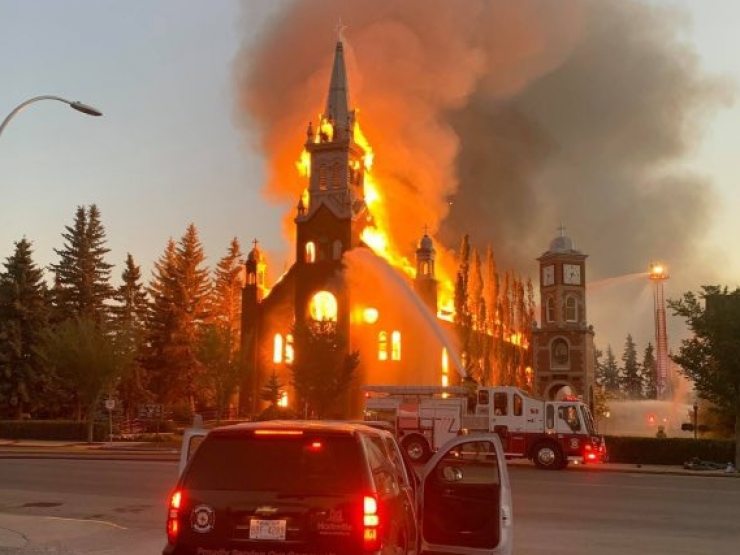The trend of Canadian churches burning down has continued, with an estimated 45 locations now decimated in the assault.
A wave of arson attacks and vandalism has occurred over the last month. An estimated 45 churches were targeted in these attacks. The targets so far have been predominantly Roman Catholic, with at least eight of the churches existing on First Nations land.
In a news conference on July 2nd, Canadian prime minister Justin Trudeau condemned the arson attacks in partnership with other local Indigenous leaders. Trudeau recognized the "shameful history" that the Catholic church needed to address and deal with. However, Trudeau notes that "I can't help but think that burning down churches is actually depriving people who are in need of grieving and healing and mourning from places where they can grieve and reflect and look for support."
Local Indigenous leaders have decried these attacks, noting the legacy of these locations for many communities. Audry Poitras, president of the Metis Nation of Alberta, condemns the recent destruction of their local church. "Some of our citizens were married there. Some left shoes on the steps to commemorate the children whose lives were lost at residential schools," Poitras said in a statement. "Violence and destruction are not the way forward during these difficult times."
While the attackers have not been identified, it remains fairly clear what sparked the assault. Locals found thousands of unmarked on the grounds of former residential schools, where the Canadian government had moved several Indigenous children in the 19th century. Officials estimate that at least 150,000 Indigenous children were forced to attend these state-funded schools with the hope of assimilating the Indigenous tribes into Canadian society. In many cases, the students were not allowed to practice or explore the history of their people in any meaningful way. These communities had a massive impact on how modern Indigenous communities relate to the Canadian state today.
While many former attendees of the residential schools detest their time at the sites, they don't wish for them destruction. "I can understand it. I don't like the church. I don't believe in the church," chief Clarence Louie of the Osoyoos Indian Band told the National Post. "Many residential school survivors hate the church with a passion – but I have never heard any of them ever suggest people turn to this … I talk to a lot of residential school survivors and, sure, there is a lot of hatred and bitterness and anger – but that still doesn't mean you go and do arson."





